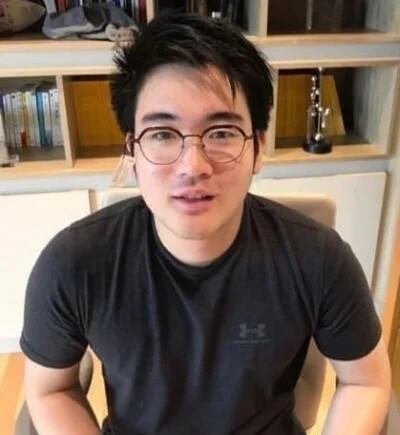
SEOUL — In a move drawing significant public and business community attention, Lee Ji-ho, the 25-year-old son of Samsung Electronics Chairman Lee Jae-yong, has given up his U.S. citizenship to begin his mandatory military service in the Republic of Korea Navy. His decision to enlist as a commissioned officer has been widely praised as a notable example of "noblesse oblige," the moral responsibility of the elite to act honorably and fulfill their civic duties.
Lee is scheduled to enter the Navy Officer Candidate School in Changwon, South Gyeongsang Province, on September 15 as part of the 139th class. For 11 weeks, he will undergo rigorous training alongside his fellow candidates, sharing a four-person room and living the same life as his peers.
A Demanding Path to Officerhood
The training curriculum is designed to instill the mental fortitude, physical strength, military knowledge, and leadership skills required of a naval officer. It is divided into four distinct phases. The first, a one-week provisional entry phase, focuses on establishing the fundamentals of military life and building basic physical fitness.
The second phase, lasting six weeks, is the "militarization" stage, where candidates face intense field exercises, including shooting, obstacle courses, individual combat training, and infiltration drills. They also learn combat swimming, small inflatable boat (IBS) operations, fire and damage control, and military law.
Following this, the two-week "officerization" phase involves comprehensive evaluations, anti-corruption training, and leadership instruction. The final two weeks, known as the "navalization" phase, are dedicated to teaching the essential naval principles before the official commissioning ceremony.
A Commitment to Serve
Upon completing the training, Lee will be commissioned as a Navy Ensign on December 1. His total military service will span 39 months, including the training period and the 36-month mandatory service as a commissioned officer. He is slated to serve in the ship branch as an interpretation officer.
Naval interpretation officers are often assigned to key units, such as fleet commands, Navy headquarters, and the ROK-U.S. Combined Forces Command. Their duties include providing interpretation during military diplomacy for high-ranking officers. Given the Navy's frequent joint exercises and exchanges with allied and friendly nations like the United States, the workload for these officers is known to be intense. Lee's choice of the Navy is believed to be a reflection of this environment, which provides extensive opportunities for collaboration with international forces.
Born in New York in 2000, Lee held dual citizenship in both Korea and the United States. He made the decision to renounce his U.S. citizenship to fulfill his military obligation. After graduating from high school in Canada, he enrolled at Sciences Po in Paris and has most recently been studying at Columbia University in the U.S. as an exchange student. Sources say Lee convinced his family to support his decision to join the Navy, with his father, Chairman Lee Jae-yong, and grandmother, former Leeum Museum of Art director Hong Ra-hee, both encouraging his choice.
A business insider commented, "For the children of a large corporation's owner family, military enlistment is more than just fulfilling a duty. It holds a significant symbolic meaning, demonstrating their social responsibility."
A Growing Trend of Leadership and Duty
Lee's commitment follows in the footsteps of other prominent figures from Korea's business elite who have chosen to serve. Choi Min-jeong, the daughter of SK Group Chairman Chey Tae-won, voluntarily enlisted in 2014 as a Navy officer candidate and served for three years. She was deployed to the Gulf of Aden as part of the Cheonghae Unit in 2015 and later served with the Navy's 2nd Fleet Command, which protects the Northern Limit Line (NLL), before being discharged as a first lieutenant in 2017.
Kim Dong-kwan, Vice Chairman of Hanwha Group, served as an Air Force interpretation officer in 2006 after graduating from Harvard University. Lee Kyu-ho, Vice Chairman of Kolon Group, also a dual U.S. citizen, renounced his U.S. citizenship and completed his active duty service in the Army, even volunteering for a deployment to Lebanon with the Dongmyeong Unit, a U.N. peacekeeping force. In 2006, Choi Sung-hwan, President of SK Networks, voluntarily enlisted in the Marine Corps Reconnaissance after graduating from college.
These examples highlight a growing trend among the scions of Korea's leading families, who are actively demonstrating their dedication to social duty and national service. Their actions are seen as a positive influence on the community spirit and reinforce the values of a shared responsibility.
[Copyright (c) Global Economic Times. All Rights Reserved.]






























